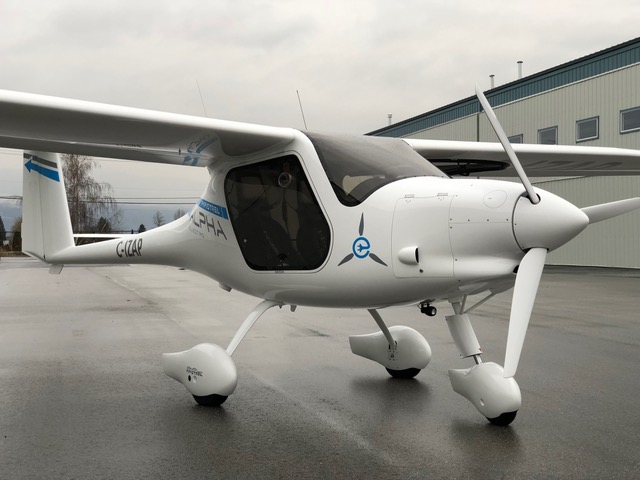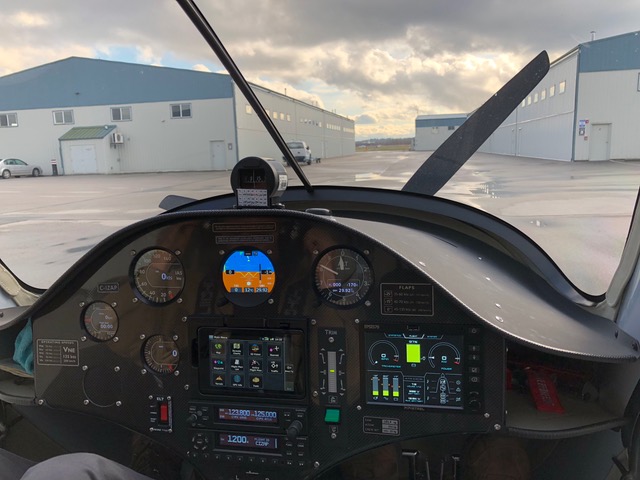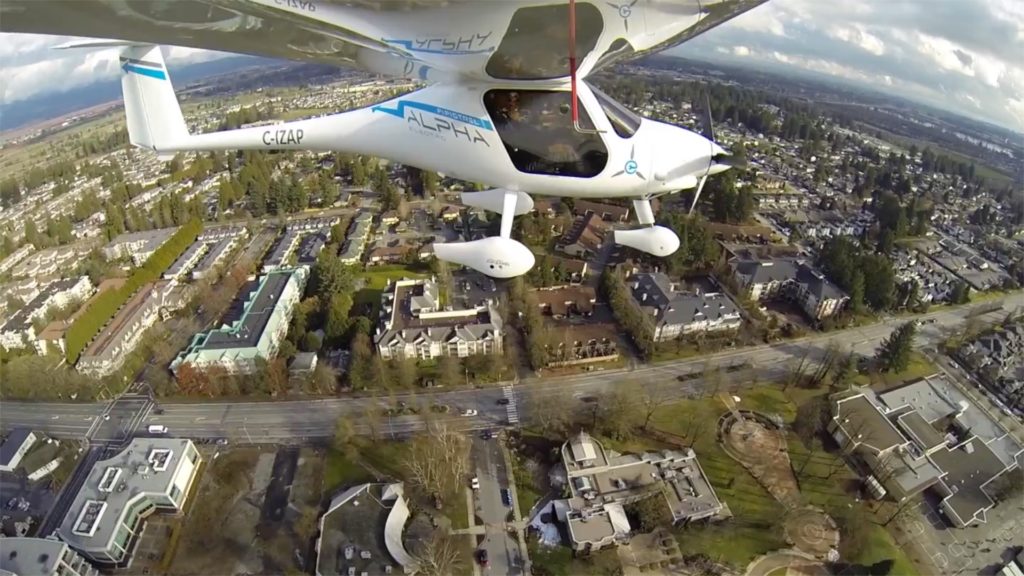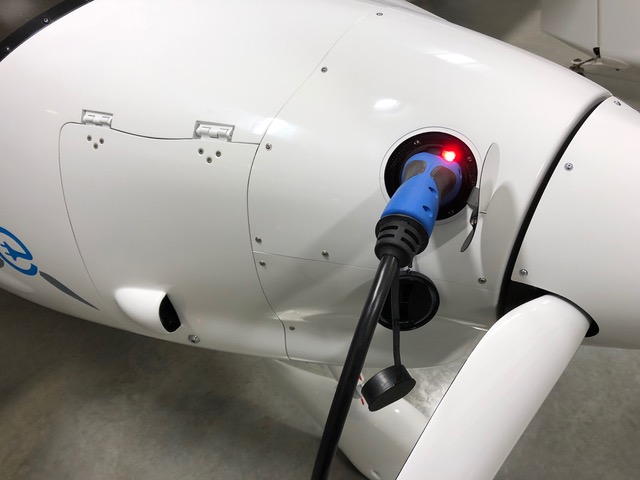Estimated reading time 6 minutes, 39 seconds.
Cruising steadily over British Columbia’s lower mainland, the only noise inside the cockpit of the Pipistrel Alpha Electro, a fully-electric two-seat trainer, is the gentle thrum of its propeller.

“It’s pretty quiet,” said James Douma, a software developer from West Vancouver who is the aircraft’s first Canadian customer.
“It’s like an electric fan, I guess, is the closest thing … you can talk with your passenger quite comfortably without the headset.”
The sound has also drawn comparisons to the whirring spaceships in The Jetsons cartoon, and Pipistrel hopes it will be frequently heard at flight schools around the world.
“Its sole design purpose is to fly circuits in the training environment,” said Jonas Boll, owner of Pipistrel Canada, the Slovenian planemaker’s Canadian distributor.

“However, we have found it will travel a distance of 150 kilometres at a cruise speed of 212 kilometres per hour, landing safely with approximately 40 per cent battery charge remaining,”
“If you are flying full speed, it has approximately an hour of useful flight time, plus the half-hour reserve … it does well in densely populated areas, where there are multiple airports within a 150-kilometre radius.
“As battery technology improves, so will this aircraft’s capabilities. And for training purposes it’s perfect, because most training flights are 50 minutes to an hour.”
Douma will use his Alpha Electro for short trips and joy rides, mainly as a way of balancing his passion for aviation with the urgent need to reduce carbon emissions.
“I’m quite panicked about that,” said Douma, who keeps the Alpha Electro, as well as a Diamond DA40 and a LAK 17B FES glider, at Pitt Meadows Regional Airport.
“It’s kind of strange to me that that whole world isn’t … everyone’s just kind of carrying on as though nothing’s happening.”
Douma said he can’t really justify using the DA40 for joy rides, and while the Alpha Electro won’t stop climate change on its own, it may be a step in the right direction.
“The things we’re doing today have huge implications for the future of humanity,” he said.
Another key selling point, to flight schools as well as private pilots, is reduced operating and maintenance costs.
It takes less than an hour to charge the Alpha Electro, at a cost of $1.50 for customers using the power grid in B.C., compared with about $40 to fill up a comparable aircraft with aviation gasoline.
The Alpha Electro’s 50 kilowatt motor has only one moving part–the bearing–and increases to 60 kilowatts of power for one minute at takeoff. Maintenance is said to be simpler and more inexpensive than with traditional aircraft.

“My maintenance is going to be almost nothing,” said Douma. “I’m not doing oil changes and all these sorts of things that you have with a regular airplane.”
The Alpha Electro is small and relatively light, measuring 6.5 metres (21.33 feet) from tip to tail, with a 10.5-metre (34.4-foot) wingspan and a maximum takeoff weight of 550 kilograms (1,212 pounds).
Its best endurance speed is 85 knots (157 kilometres per hour), with a cruise speed of 115 knots that only reduces its range by three per cent when compared to endurance speed.
The aircraft has a maximum climb rate of 1,220 feet per minute, and its motor doesn’t require a warm-up period.
“It’s like one of those little electric slot race cars,” said Boll. “You just pull the trigger and away it goes.”
Boll said he’s received calls from flight schools across Canada about the aircraft, adding interest is fairly high.
“It’s just a matter of making sure that issues that are specific to Canada are addressed,” he said.
“For example, currently the airplane doesn’t have provisions for cockpit heat, but that’s something that I’ve brought up with the engineers, stating that if we want this thing to fly in Canada, it’s mandatory … and that shouldn’t be an issue. It’s just something that we haven’t put in place yet.”

Douma said he flew the aircraft during a cold snap when temperatures dipped to -6 C, adding it was “perfectly comfortable at that temperature.
“It’s a small cabin, so I didn’t feel cold at all,” he said. If you’re flying in -30 or something like that, I don’t know.
“But for most of the year, and probably most days that you’d want to go flying, it’s probably not that bad.”
Douma expects a bit of resistance to the Alpha Electro, noting some pilots are reluctant to switch from steam gauges to glass cockpits. Still, he hopes it will catch on.
“I know for most of my flying–and I think like most of the pilots I know in the area– it’s just going up for a short flight to get a hamburger or meet up with some friends,” he said.
“And for that kind of flying, it’s the perfect airplane.”









I’m really stoked that somebody is flying an Alpha Electro in BC – its a great beta-test for aircraft in Canada, and gives people here some insight into how this plane flies in these conditions.
I hope Pipistrel can improve the battery capacity on this unit without too much additional weight. Tall order considering the limits of battery tech I know, and I think its great that you can already do training circuits on it. But if/when they can up the non-reserve flying time and range to even 90 minutes (2 hours hopefully!), it might put a few more destinations on the map that will help people better rationalize buying the plane.
Once you can fly from Vancouver to Whistler (Pemberton), Nanaimo, Duncan, Victoria or maybe one day Tofino, then suddenly everyone that wants one is going to have much less reason to not buy one. Seriously, think of all those great short-hop business (and lunch) opportunities that become viable.